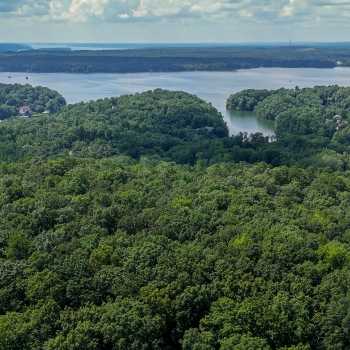Why White County Tennessee Land Attracts Buyers
White County land offers real versatility. You can run cattle in open pastures, grow cash crops in fertile valleys, or manage hardwood timber on the slopes. It sits between Nashville and Knoxville but keeps its local identity, with strong community ties and minimal sprawl. This county is well suited for buyers looking for productive acreage with both income potential and outdoor value.
Pastureland dominates much of the ag footprint, with over half the farms focused on cattle production. Soybeans, corn, and hay are the main row crops, and many farms operate under family ownership. For timber investors, upland areas support a healthy mix of oak and poplar, offering long-term returns through selective harvests. Poultry producers are also active here, especially broiler operations supported by local integrators. Smaller parcels often go to homesteaders and recreational owners wanting access to fishing, trails, and solitude.
Sparta's location near the Caney Fork River and Virgin Falls makes it appealing for outdoor-focused buyers. This isn't a flashy market, but it's steady, with consistent demand and practical land uses. Whether you're buying for recreation, income, or legacy, White County gives you real land with real use in a region that holds its value.
Natural Land Features That Make White County TN Stand Out
White County offers a rare mix of karst geology, highland plateaus, and river valleys that support agriculture, timber, and wildlife. It sits in the heart of the Eastern Highland Rim, where bluffs overlook waterfalls and sinkholes dot working pastures. Buyers are drawn to properties with both productive land and scenic value, especially along the Caney Fork corridor. Public access to wilderness areas and dramatic topography make it more than just farmland—it’s also a place where buyers come for natural beauty.
Caney Fork River Basin
This major watershed runs through the county’s southern edge and supports both trout fishing and scenic farmland. Riverfront acreage holds high demand due to recreation and soil fertility.
Highland Rim Escarpments
Steep ridgelines separate valleys and offer hardwood timber potential and panoramic views. These zones attract both hunters and conservation buyers.
Karst Terrain & Sinkholes
Much of the pastureland sits atop karst formations, creating natural drainages and unique landforms. This supports grazing and hay production, with some parcels used for cattle year-round.
Timber, Poultry, and Row Crop Investment Land in White County TN
White County supports multiple land investment paths, especially for buyers looking to combine recreation with income. Timber tracts with mature hardwoods are common on upland slopes and often managed for long-term harvest cycles. Poultry operations, particularly broiler houses, operate on flatter ground near utilities. And in the valleys, row crops like soybeans and corn thrive thanks to loamy, well-drained soils. Whether you're looking for an ag rental, a personal farm, or legacy acreage, this region gives you real options backed by working land.
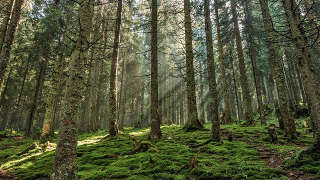
Hardwood Timberland
Oak, poplar, and hickory dominate White County’s ridge systems, often mixed with maple and beech in wetter spots. These forests support habitat and sustainable timber harvests. Many parcels are enrolled in land management programs or harvested selectively every 12 to 20 years. Buyers gain both recreational access and long-term revenue options.
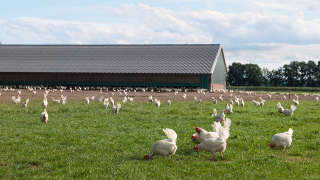
Broiler Poultry Sites
Multiple broiler farms operate in White County, typically under contract with integrators. Operations need electricity, reliable water, and truck access. Many use 40x500 houses or larger, with litter reused as fertilizer. These sites bring in steady income and can be scaled depending on the number of houses. Ideal for buyers looking for agribusiness returns on mid-sized parcels.
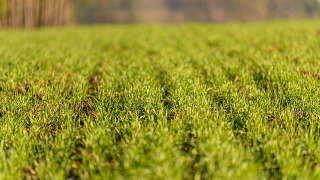
Row Crop Bottoms
Fertile ground along the Calfkiller and other bottomlands supports corn, soybeans, and wheat. Loamy soils and consistent rainfall allow for multiple crop cycles or rotations with hay. These parcels often lease to local farmers or are used for feed production in integrated cattle operations. Ideal for passive investors or producers expanding acreage.
Hunting and Fishing Land with Wildlife Habitat in White County TN
White County's mix of upland forests, bottomland creeks, and wild ridgelines make it a reliable spot for wildlife habitat. While deer and turkey are steady draws, more diverse options include ruffed grouse, black bear, and stocked trout. The Bridgestone Firestone Centennial Wilderness offers thousands of acres for hunting and hiking. Anglers can work the Caney Fork and Calfkiller for trout and bass. For buyers wanting both a retreat and practical land use, this region provides balance between sport and stewardship.
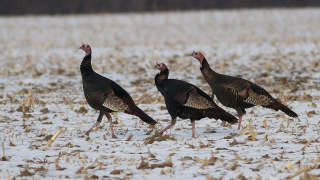
Turkey
Gobblers are found across pastures, fencerows, and forest edges. Spring hunting is strong near agricultural fields and managed clearings.
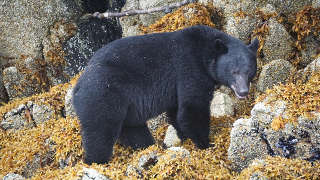
Black Bear
Occasional sightings in the Bridgestone Wilderness show habitat expanding. Bears move through timbered corridors and steep bluff zones.
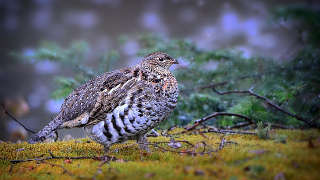
Ruffed Grouse
One of few Tennessee counties with viable grouse numbers, especially in cut-over hardwoods and brushy ridge thickets. Coveted by upland hunters.

Fishing
The Caney Fork holds stocked brown and rainbow trout, while the Calfkiller supports native bass. Great access from multiple public ramps.
Living in a Quiet County with Big Outdoor Access
White County offers something you can't buy in a subdivision—quiet space with real land around you. But it’s not cut off. You’re 20 minutes to Cookeville, and an hour from larger cities, but still inside a county where tractors on the road aren’t out of place. Residents value that balance. It's not crowded, but you're not isolated either.
Public land access is unmatched for a county its size. From Virgin Falls to the Bridgestone Firestone lands, locals and landowners can hike, hunt, or fish without long hauls. The land market here reflects use, not hype. You’re buying usable ground, whether that’s for cattle, crops, timber, or personal peace and quiet. And when fall hits, you’ll find folks pouring sorghum, picking guitars, and still waving to every truck on the road.
Nearby Rural Land Markets Around White County TN
White County borders several other strong land markets in Middle and East Tennessee. These nearby counties also offer productive acreage, timberland, and outdoor property with their own unique appeal. Buyers often consider them when searching within driving range of Sparta.
Putnam County
Close to Tennessee Tech and I-40 access, Putnam offers small farms and recreational land with strong ag services nearby.
Van Buren County
Known for Fall Creek Falls and bluff country, Van Buren has affordable land and rugged topography ideal for timber and recreation.
DeKalb County
Home to Center Hill Lake, DeKalb offers lakefront parcels, forest tracts, and open pasture near Smithville and the water.
